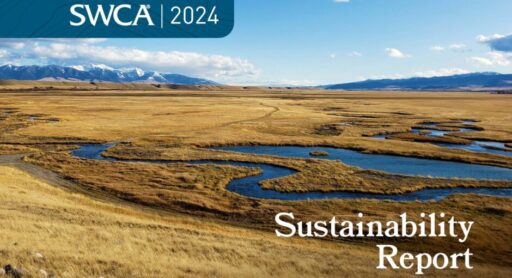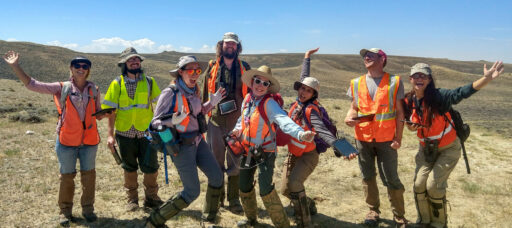2025
Comparably’s Best Company Outlook
* Providing engineering services in these locations through SWCA Environmental Consulting & Engineering, Inc., an affiliate of SWCA.

From the experts we hire, to the clients we partner with, our greatest opportunity for success lies in our ability to bring the best team together for every project.
That’s why:

At SWCA, sustainability means balancing humanity’s social, economic, and environmental needs to provide a healthy planet for future generations.

SWCA employs smart, talented, problem-solvers dedicated to our purpose of preserving natural and cultural resources for tomorrow while enabling projects that benefit people today.

At SWCA, you’re not just an employee. You’re an owner. Everyone you work with has a stake in your success, so your hard work pays off – for the clients, for the company, and for your retirement goals.
Final Rule Adopts Narrowing Interpretation of Migratory Bird Treaty Act Prohibitions
Doug has 25 years of biology and ornithology experience in the southern and western United States, Costa Rica, and Mexico, and is recognized as a regional expert in field ornithology. He also is the lead biologist for bat monitoring projects in SWCA’s Rocky Mountains and Plains region. He conducts field surveys, performs desktop review of scientific literature, and consults with agency resource specialists to address impacts on biological resources considered in National Environmental Policy Act (NEPA) documents. With general and specific knowledge of natural history across multiple tax and competence in local, state, and federal regulations pertaining to wildlife conservation and management, Doug advises on environmental study design and analysis, and peer reviews technical reports. He is published in peer-reviewed journals and is currently an associate editor of the peer-reviewed regional journal Western Birds.


The U.S. Fish and Wildlife Service (USFWS) published a final rule that becomes effective on February 8, 2021, reaffirming a solicitor’s opinion that the Migratory Bird Treaty Act (MBTA) applies only to actions directed at migratory birds, their nests, or their eggs. The new regulation states that “injury to or mortality of migratory birds that results from, but it not the purpose of, an action (i.e., incidental taking or killing) is not prohibited by the Migratory Bird Treaty Act.”
The MBTA protects more than 1,000 bird species from acts that include, among other things, pursuing, hunting, taking, capturing, and killing at any time, by any means, or in any manner, unless permitted by regulation.
Until 2017, the USFWS had long interpreted the MBTA to prohibit the taking or killing of migratory birds that occurs incidental to other activities. Violations of the MBTA are criminal offences, but the USFWS does not have a regulatory program for addressing this kind of impact. Instead, the agency relied on its prosecutorial discretion to enforce the MBTA and generally prioritized circumstances when a violation was direct and foreseeable or was the outcome of “extrahazardous” activity.
Prosecutions under the MBTA for incidental takings and killings have resulted in multi-million-dollar fines and imprisonment. However, legal interpretations varied by geography because various Federal Courts of Appeals had issued differing opinions.
These circumstances created considerable confusion and uncertainty within the regulated community about when the prohibitions of the MBTA apply and how to remain in compliance.
The new regulation clarifies, as a matter of law and policy, that incidental taking or killing of migratory birds is not prohibited by the MBTA. For example:
Please note that relevant state and local regulations still apply.
The new regulation is highly controversial. The upcoming change in Administration and a new Congress create a possibility that within the next two months Congress could repeal this regulation pursuant to the Congressional Review Act.
In the meantime, the USFWS will continue to offer technical assistance and guidance to those seeking to reduce impacts on migratory birds, such as best practices or technologies that avoid or minimize incidental take of migratory birds.
SWCA can answer questions and help you understand what this new MBTA regulation means for your activities. Contact your SWCA project manager or our migratory bird experts for more information.